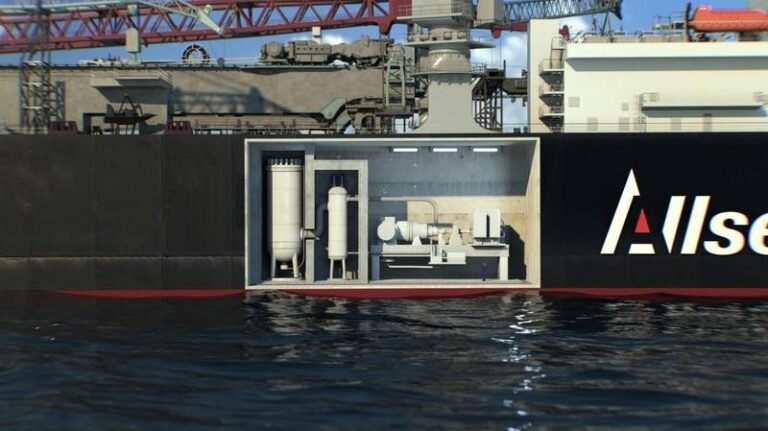Allseas Launches Five-Year Plan for Small Modular Reactor Development
Dutch offshore contractor Allseas has announced a groundbreaking initiative to design, develop, and deploy a Small Modular Reactor (SMR) tailored for integration into offshore vessels and for onshore use. Leveraging their 40 years of engineering expertise in the offshore energy industry, Allseas is venturing into nuclear technology to deliver clean, high-performance energy systems to sea and shore.
High-Temperature Gas-Cooled Reactors for Safety and Efficiency
For their SMR project, Allseas has chosen High-Temperature Gas-Cooled Reactors (HTGRs) in the 25 MWe range, known for their inherently safe characteristics. This fourth-generation reactor technology operates without combustion or emissions, making it an environmentally friendly energy solution.
HTGRs utilize TRISO fuel particles, each the size of a poppy seed, which contain a uranium oxide core coated with advanced ceramic layers for fission product containment. This design ensures passive safety, where the reactor can self-regulate and remain stable, maintaining temperatures below critical thresholds. In case of a malfunction, the system automatically cools down and shuts off without external intervention.
Sustainability at the Core of Allseas’ Strategy
In addition to safety considerations, Allseas is exploring circular approaches for their SMR project, including the reuse of graphite and reprocessing of spent TRISO fuel to minimize environmental impact. Waste management remains a key focus throughout the SMR lifecycle to ensure sustainable operations.
Five-Year Roadmap for Development
Allseas has outlined a five-year development plan for their SMR project. The initial phase involves finalizing design studies for offshore and onshore applications. Subsequent steps include prototype development, pre-licensing discussions with regulatory bodies like the Dutch Authority for Nuclear Safety and Radiation Protection, International Maritime Organization, and International Atomic Energy Agency, as well as collaboration with research partners such as TNO, NRG PALLAS, TU Delft, and KVNR.
“Our goal is to commence production at a dedicated facility by 2030, with initial deployment likely on land before expanding to offshore installations. This aligns with our sustainability targets of 30% emissions reduction by 2030 and achieving net-zero operations by 2050,” said Stephanie Heerema, Project Manager Nuclear Developments at Allseas.
“This technology is crucial for the energy transition and strategic autonomy in the maritime and offshore sector. It also enhances the long-term competitiveness of Dutch and European industries,” added Maarten Tossings, COO of TNO.

